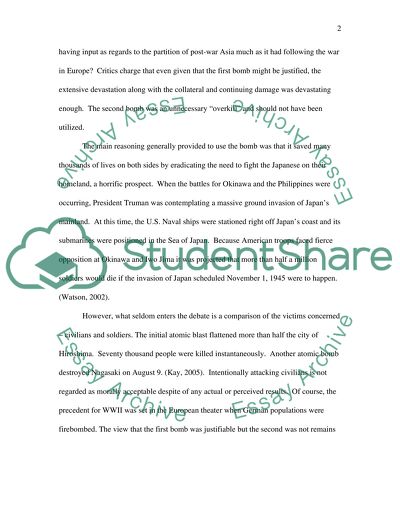Cite this document
(“Was it Right to Drop the Bomb on Hiroshima and Nagasaki Essay”, n.d.)
Retrieved from https://studentshare.org/history/1446200-was-it-right-to-drop-the-bomb-on-hiroshima-and-nagasaki
Retrieved from https://studentshare.org/history/1446200-was-it-right-to-drop-the-bomb-on-hiroshima-and-nagasaki
(Was It Right to Drop the Bomb on Hiroshima and Nagasaki Essay)
https://studentshare.org/history/1446200-was-it-right-to-drop-the-bomb-on-hiroshima-and-nagasaki.
https://studentshare.org/history/1446200-was-it-right-to-drop-the-bomb-on-hiroshima-and-nagasaki.
“Was It Right to Drop the Bomb on Hiroshima and Nagasaki Essay”, n.d. https://studentshare.org/history/1446200-was-it-right-to-drop-the-bomb-on-hiroshima-and-nagasaki.


